Disclosure: We may get commissions for purchases made through links in this post.
Iced pavers aren't easy to deal with during the winter season. You should immediately address them to reduce the possibility of accidents when your pavers get too slippery. If you want to find out what are the best snow and ice melt for pavers, you're in the right place! We've done the research to give you the best answers.
The best snow and ice melt for pavers are deicers without any harmful chemicals. They are usually CMA, magnesium chloride, calcium chloride, and Safe Paw, although there are other natural alternatives too.
As a rule of thumb: safety is always the priority. It's always best to choose deicers that are safe and can guarantee less toxicity. Read further if you want to find out more about the best snow and ice melt for pavers.
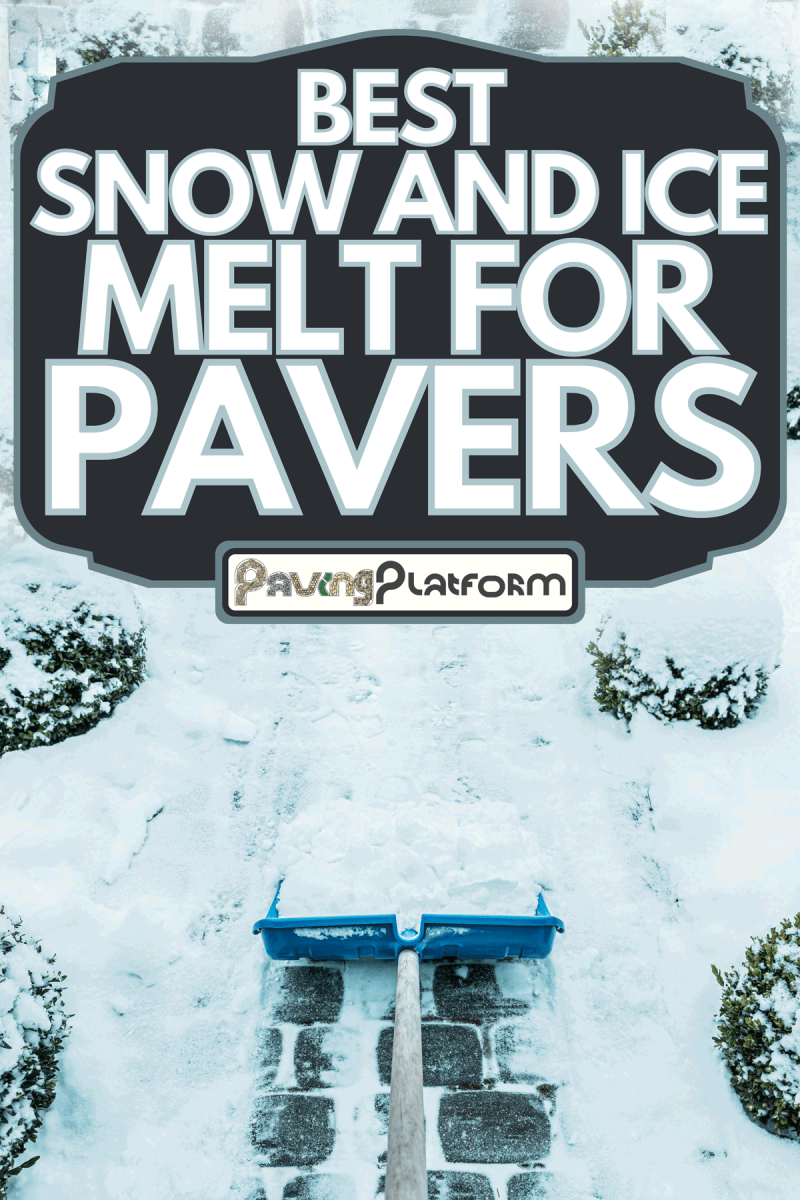
Guaranteed Safe Deicers
The best snow and ice melt for your pavers consist of deicers that are family- and environment-friendly. These substances do not contain chemicals that may cause health hazards.
Calcium Magnesium Acetate (CMA)
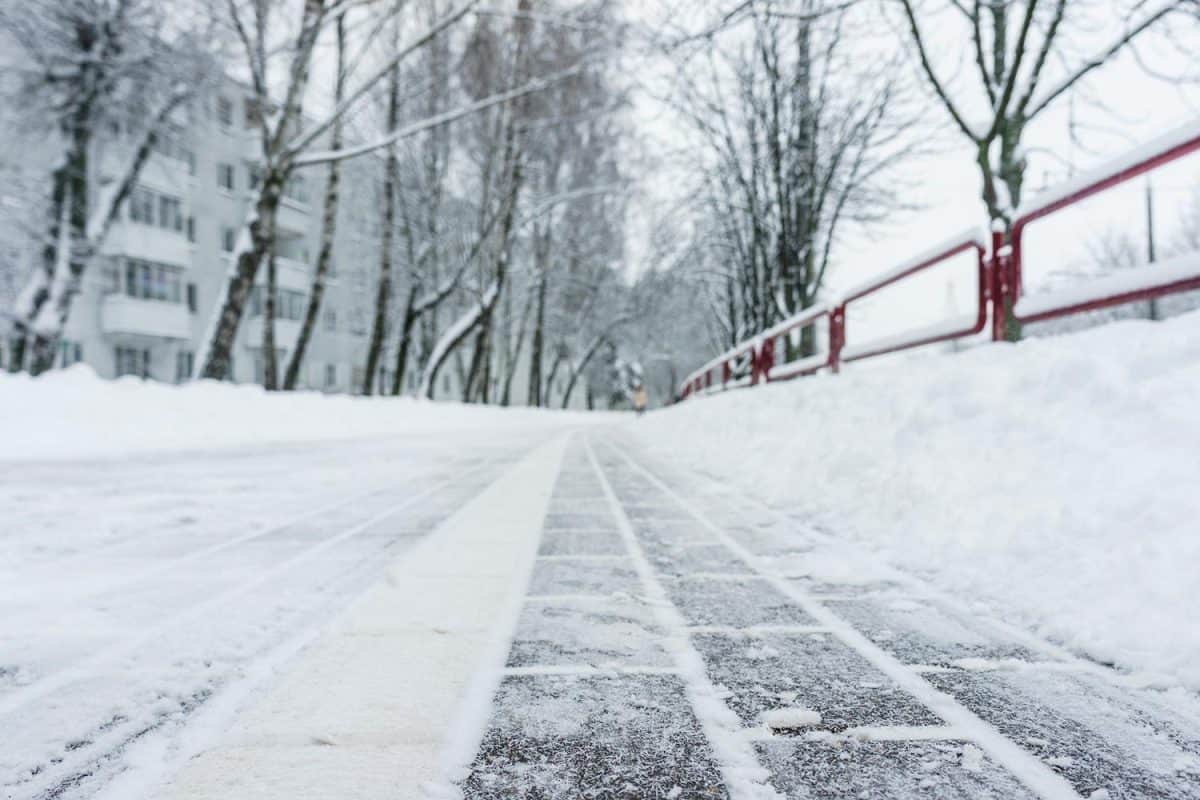
Calcium Magnesium Acetate (CMA) makes a great ice melt for your pavers as it protects the hardscape against rough effects brought about by winter. Aside from that, CMA is known to perform even at the toughest temperatures as low as 25 degrees Fahrenheit.
CMA can immediately melt snow and ice by formidably heating moist areas exothermically once they get in contact with the deicing substance. It then starts to form a brine solution that helps in lowering the temperature and ensures the prevention of ice and snow from forming.
One of the advantages of calcium magnesium acetate is that it has no chlorine. It thus lessens the possibility of structural damage on your pavers since CMA, like tap water, has low corrosive properties and is completely biodegradable.
CMA comes in different colors so this offers you the advantage of easily seeing it once applied. This also helps in ensuring the safety of your household.
Magnesium Chloride
Magnesium chloride's melting power is absolutely bomb. However, this may depend on the conditions and compositions of the substance within a certain blend of ice melt. But it is sure-fire that this product is adequate in temperatures from -25 degrees to -32 degrees Fahrenheit.
Magnesium chloride heats up snow and ice rapidly through its exothermic healing properties. At the same time, it forms a brine solution that lowers the freezing point of water.
With this product's efficacy, it usually goes sold out during winter seasons, which means that you need to purchase one in advance in case you'll need it.
Aside from that, magnesium chloride is less irritating to the skin so it's also guaranteed safe for the environment and your household. Also, when this product dissolves, it usually becomes slurry and leaves very little residue, giving you the benefit of less time for cleaning up.
However, magnesium chloride can corrode metal surfaces. So it may cause rust on your vehicles and other metal surfaces it gets in contact with it.
Not only that—magnesium chloride can also cause damage to concrete as the substance increases the amount of water seeping into pores in the concrete, resulting in a freeze-induced expansion.
Calcium Chloride
Calcium chloride is labeled as the most effective ice melting formula and well recognized as the fastest-acting one. It can work in temperatures as low as -25 degrees and can even ensures that your pavers are well covered and protected even on the most freezing cold winter nights.
Once this product is applied to pavers, it immediately provides heat to the surrounding snow and ice. It has crystals that attract and absorb moisture that speeds up the heat and the melting process.
EPA considers calcium chloride as environmentally safe to use. However, overapplication of this ice melt can lead to excessive damage to plants.
Most of the time, calcium chloride does not leave any residue so it's suitable to apply in entryways. Plus, it guarantees safety around your household. This also means that once the snow tracked in your pavers dry, you won't have to deal with grey films setting in on top of your flooring.
Safe Paw
Finally, the best for last. This product is made up of a modified crystalline amidst the center, dispersed with glycol admixture, and has traction agents. Safe Paw has liquid components that melt ice and break the surface tension.
UTS crystal core penetrates and destabilizes ice, which makes melting a speedy process. Also, Safe Paw has an invisible layer of protection that helps prevent ice from sticking to surfaces for three days.
Safe Paw guarantees that it's safe and non-toxic for pets, children, plants, and shrubs. It is 100% salt-free, so this makes it environment-friendly. It can be safe to use for asphalt, concrete, and pavers. It is non-corrosive and it performs impressively well up to -2 degrees below zero.
It attacks and retains solar heat, plus it offers extra melting power, especially during daylight. It won't damage deckings, it does not stain or damage flooring, and it won't contaminate water or well suppliers.
The product is highly concentrated and extremely effective. Its capacity is unmatched and exceeds all of the ice melt previously mentioned.
See this Safe Paw icemelt on Amazon.
What Are Natural Ways To Deice Pavers?
Luckily, there are natural ways to device pavers! As an alternative to chemically induced deicers, you can opt to do the following:
- You can use wood ash since this material contains potassium salt that can help melt snow and provide traction. It absorbs heat. It's also not harmful for your plants, animals, and paved surfaces.
- Use leftover coffee grounds. It has nitrogen that can help melt ice and add extra grip.
- You can also place plastic tarps on high-traffic surfaces on your pavers even the winter falls.
- You can also make an all natural fertilizer such as an Alfalfa meal. It is made up of nitrogen that works as a deicer too.
- If the ice is thick, add 40% of water and 60% vinegar and pour the solution into iced surfaces. Amazingy, it will turn the ice into liquid.
- You can make a home made-ice melter too! Reader's Digest suggests to combine a half gallon of water, 6 drops of dish soap, and 1/4 cup of rubbing alcohol. When you pour this into iced surfaces, they will bubble up and melt.
- Not everyone wants to bear the struggle of shovelling snow outside! But shovelling really lessens the dire need for ice melting treatments.
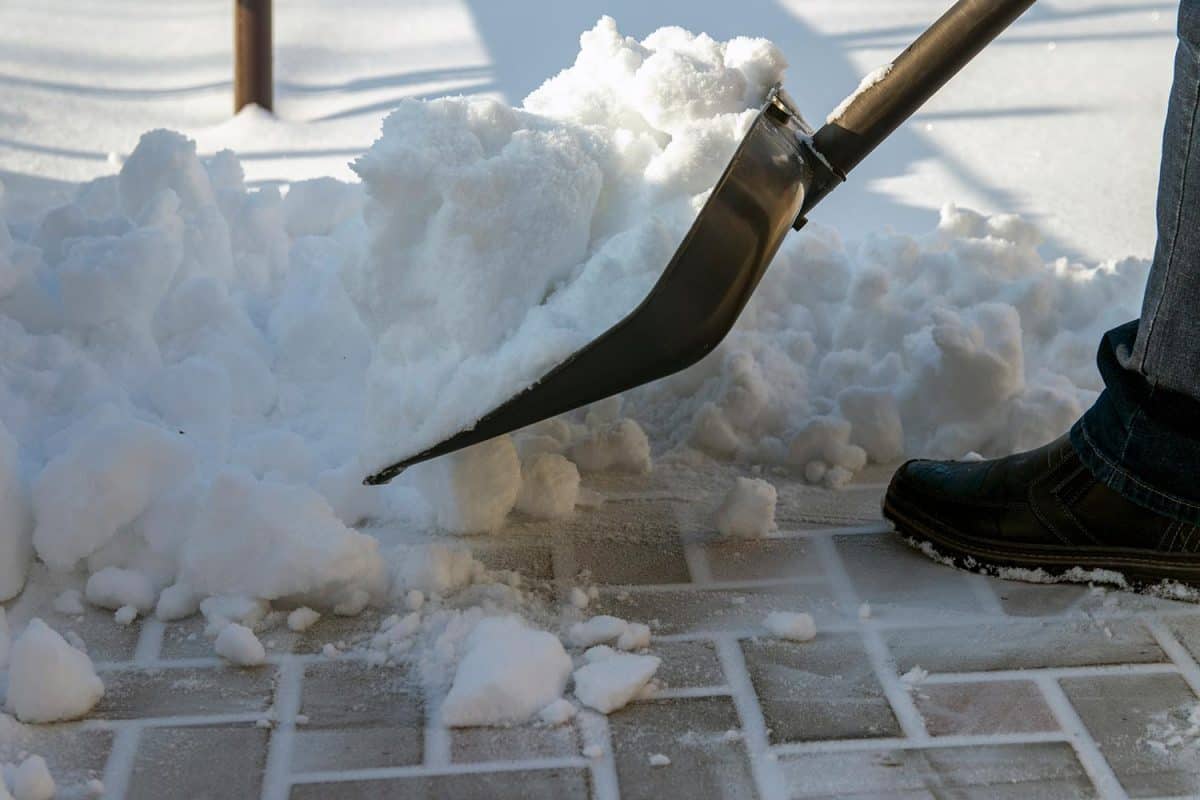
How Do You Melt Ice On A Gravel Driveway?
To melt ice on a gravel driveway, you can make use of the following steps:
- Shovel or blow the snow within 1 inch of the driveway.
- Set snow blower to 1 inch above the ground, or simply shovel above the gravel driveway.
- Seep the thin layer of snow that remains on your gravel driveway.
- Sprinkle a 50/50 mixture of sand and rock salt on the driveway. Sand gives traction, while salt melts the snow.
- Reapply sand and salt when needed.
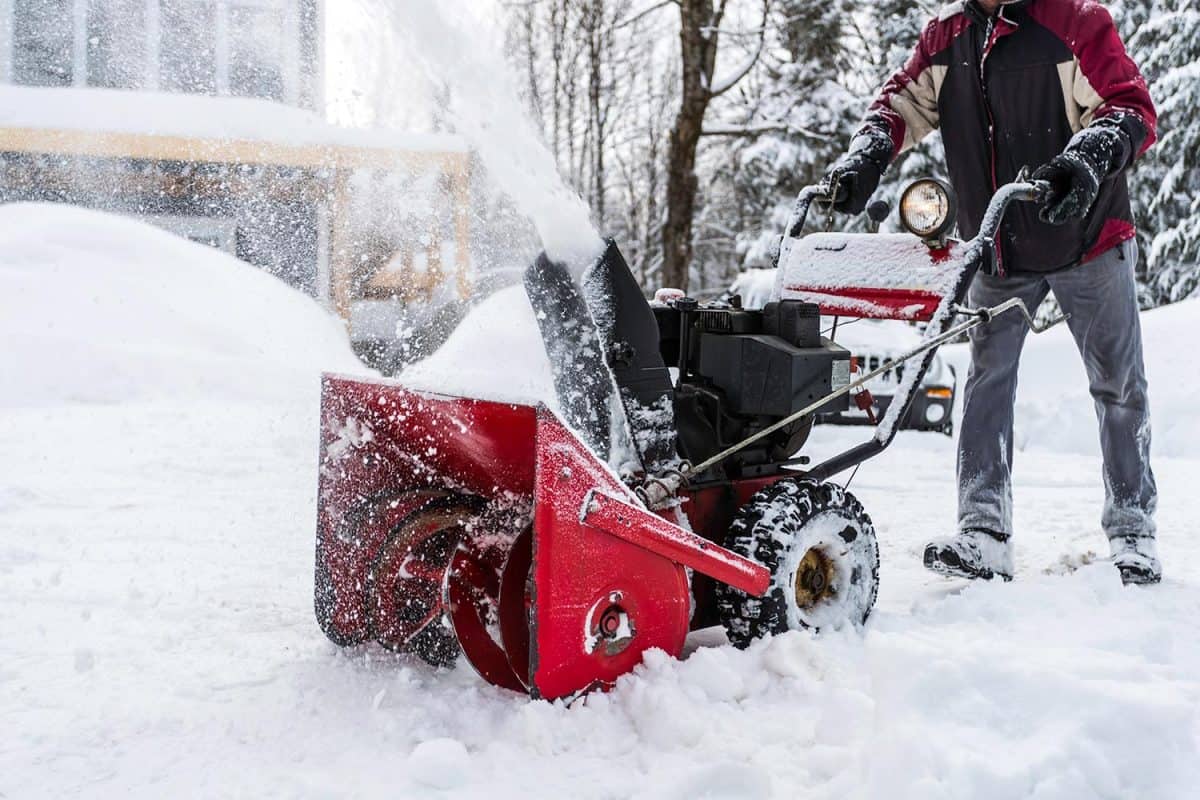
You can also take a look at this YouTube video by Stanley Dirt Monkey. It highlightss doing another alternative of removing ice on gravel driveways:
Does Ice Melt Damage Pavers?
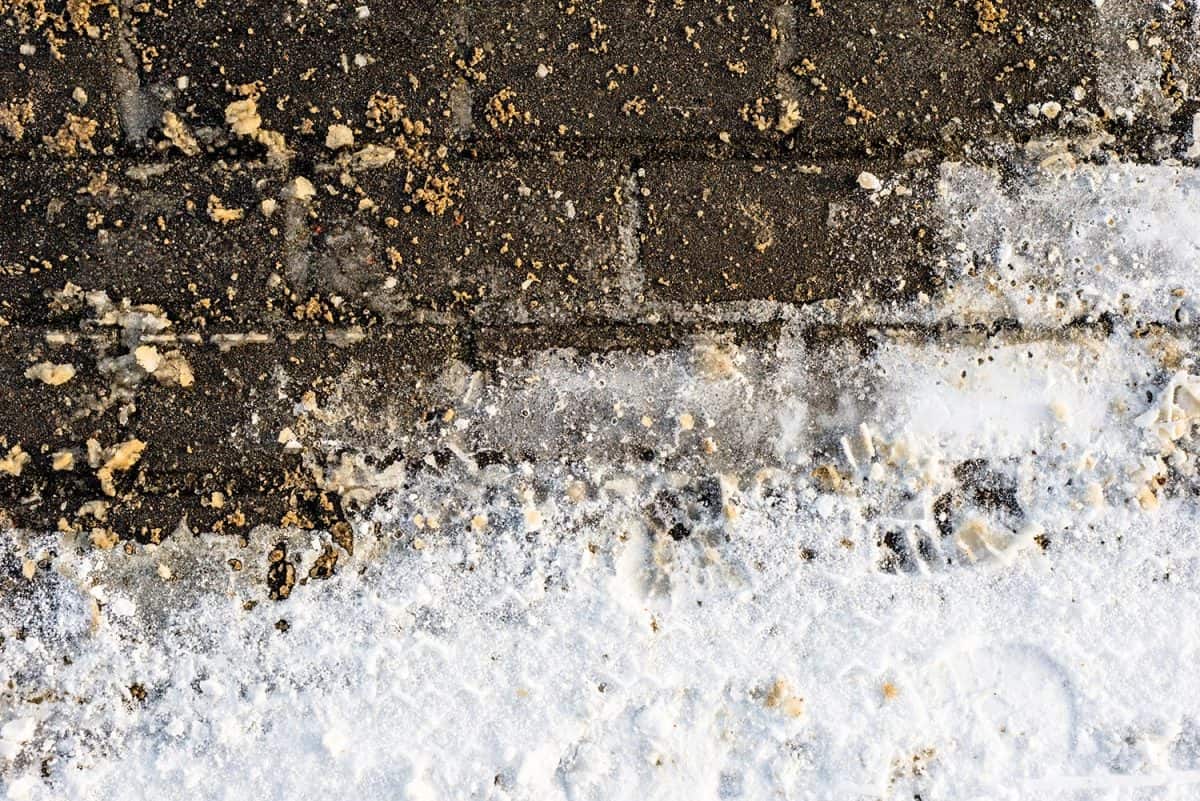
Ice melt does not necessarily damage pavers as it has other chemical components that guarantee safety for bricks. For this reason, it is very important to do your research and understand ice melts and how their substance should match the type of pavers you have.
There are ice melts that are non-chloride, cement-safe, non-corrosive, and pet friendly just like Safe Paw. It is suitable for most pavers (concrete, brick, stone) and can also act as a pre-treatment to prevent ice from sticking out.
What's more, it doesn't cause efflorescence. It does not leave any crystal deposit so it's safe for plants, pets, and vegetation.
For more tips, you watch this YouTube video by This Old House as they discuss the best icemelt for driveways:
In Closing
Now that you have read ideas on the best ice melt for your pavers, the call is yours! Just remember to choose products that will provide you with the safety and convenience you need for your household. Bundle up and stay warm!
If you enjoyed this article, you can also read:


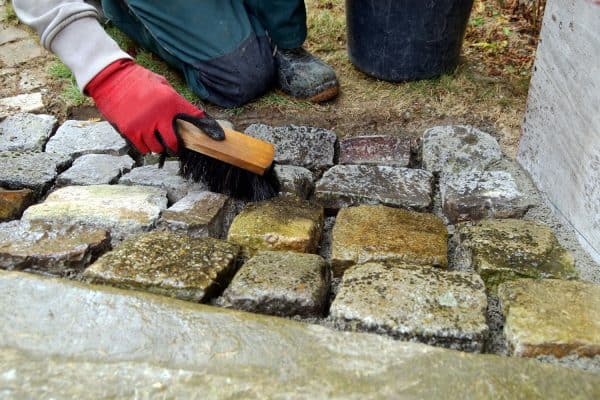
![Blue stone pavers on the garden patio, How To Clean Bluestone Pavers [Care & Maintenance Tips]](https://pavingplatform.com/wp-content/uploads/2022/03/Blue-stone-pavers-on-the-garden-patio-600x400.jpg)
![washing services - block paving cleaning with high pressure washer - Can You Pressure Wash Travertine Pavers? [Best Cleaning Methods]](https://pavingplatform.com/wp-content/uploads/2022/03/washing-services-block-paving-cleaning-with-high-pressure-washer-600x400.jpg)